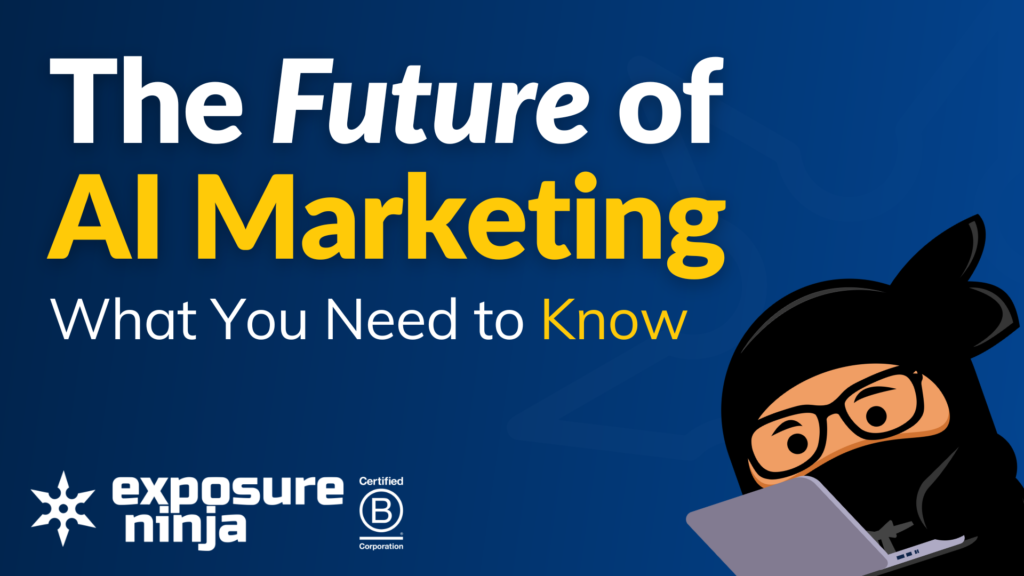
Get Weekly Marketing Tips
Join 30,000+ marketers and get the best marketing tips every week in your inbox
61% of consumers consider company ethics and values before making a purchase.
61%
That’s no small segment of your customer base.
If you’re an ethical business, you want to know how you can reach these people and beyond, without looking like you’re just cashing in on a trend.
Here’s how you can achieve that with marketing.
We’re going to explore what ethical marketing actually is, share some examples of businesses doing ethical marketing (both good and bad), and we’ll share how you can build an ethical marketing campaign from the ground up.
What is an Ethical Business?
An ethical business is one that:
- Sells ethically sourced products or considers sustainability when carrying out services
- Treats its staff well – above and beyond just what the law asks of businesses
- Treats its customers well and is transparent and honest with them
- Doesn’t make any false marketing claims
- Owns its mistakes and strives to improve constantly.
What is Ethical Marketing? (And Why It Matters For Your Business)
Ethical marketing is used to describe any marketing activity that not only promotes your products or services (which are produced or carried out in an ethical way) but also promotes environmental or social causes your business cares about.
Ethical marketing practices also include being honest with customers and protecting customer data and privacy.
Ethical causes
The causes you promote in your marketing will most likely be connected to the values of your ethical business.
If you strive to sell the most environmentally friendly products, then it makes sense for you to promote environmental causes in your marketing.
That said, you don’t have to stick to one cause. For example, you can promote LGBTQ+ causes alongside your environmentally friendly products if inclusivity is an important value in your business.
The environmental or social causes that you include in your marketing should be reflected in your business practices to make your marketing, and your business, truly ethical.
If you’re promoting environmental issues in your marketing but doing nothing to cut down on your own waste in your business practices then your marketing could come across as false – which could cause customers to lose trust in you.
What not to do
When it comes to ethical marketing, misleading your customers is a huge no.
There have been cases in the past where companies have claimed to stand by an ethical cause but behind the scenes, it hasn’t been reflected in their business practices or products, even if the business was started as an ethical one.
You may have fallen victim to this yourself if you’ve ordered something that was marketed to you as eco-friendly and it arrived covered in non-recyclable plastic.
Or maybe you supported a business because of its values around inclusivity then found out that behind the scenes things were very different.
Choosing your channels
Some businesses even decide to choose their marketing channels carefully. For example, if a publication or social media platform has acted unethically or against a business’s values they may decide not to promote their product or service in that space.
Ethical cosmetics brand Lush felt that social media as a whole didn’t align with their values, so they decided to remove all their accounts from social media.
As an inventor of bath bombs, I pour all my efforts into creating products that help people switch off, relax and pay attention to their well-being. Social media platforms have become the antithesis of this aim, with algorithms designed to keep people scrolling and stop them from switching off and relaxing.”
– Jack Constantine, Inventor and Chief Digital Officer at Lush
Now, we’re not saying you need to be this extreme, but this is an example of a brand that really wanted to embody its values to the fullest.
That said, if you do your research before acting you may well find that your target audience will react to this type of extremism well. Lush has a history of being rebellious and standing for causes, so taking a stance like this is likely to resonate well with its target audience.
Right after leaving social media, Lush saw a 20% increase in sales compared to the same period the previous year. If we’re looking at overall growth, they saw a drop in store sales but an increase in eCommerce sales.
There are lots of different elements that make up an ethical marketing strategy and different ways of marketing your ethical business. Here are some examples of businesses that embody their values and causes both inside and outside the business.
Is your marketing underperforming?
Request a free website and marketing review and our team will tell you how to improve your marketing.


Examples of Ethical Business Marketing
All the businesses we’ll be talking about are B Corps, just like Thinkplus. B Corp is a certification for businesses that want to make a positive impact and improve the world. It involves a thorough evaluation of how businesses treat their workers, customers, community, and the environment.
Learn more about what being a B Corp means to Thinkplus.
Simply Business (B2B)
Simply Business is a business insurance provider that has been a Certified B Corporation since 2017 as a result of its positive social impact and has also been voted the Sunday Times Best Company To Work For twice in a row.
So how does this reflect in their marketing?
Because it scores highly with B Labs for employee treatment and well-being, let’s take a look at whether it’s promoting this to its customers – small business owners.
Landing on the Simply Business Twitter we can see that it’s running a campaign alongside Mental Health At Work to highlight the mental health problems small business owners face and offering genuinely helpful advice and resources that small business owners can use right away.
Not only does it care about the well-being of its own staff, which is reflected in its B Corp score, but it’s also offering well-being advice and support to its customers.
What can you learn from Simply Business?
Simply Business could easily just shout about how well it takes care of its staff, and this would be good marketing for the brand.
But, the insurance company takes it to the next level by using what it’s learnt by caring about the well-being of its own staff and using that to educate small business owners on taking care of themselves and their employees.
Candy Kittens (B2C)
Candy Kittens is a gourmet sweet company who have been B Corp certified since October 2023 and score highly in the environmental category.
The homepage explains how its products are vegan, made with real fruit juice, palm oil free, and use all-natural colours and flavourings. The products are also carbon neutral.
These are big statements to make, but the brand backs these up with proof.
If Candy Kittens were claiming all these ethical elements because it’s “trendy” but not acting on them, then this might do more harm to the business than good.
One way it embodies its ethical values is with initiatives on its website like The Outlet, where it sells off products which are safe to eat but are past their best-before date so they don’t go to waste.
This means they can embody one of their values (caring for the environment) while also offering customers a great deal.
They’re very transparent on the product page about why these products are discounted so that no one is buying them under false pretences.
What can you learn from Candy Kittens?
Candy Kittens identified food waste as a problem in its industry, and by being transparent and honest with customers, has been able to offer them products at a discounted price which is great for customers, great for the environment and aligns with the business’s ethical values.
B&M (B2B)
B&M is a construction consultation company that has been B Corp certified since April 2023 and scores highly for workers, community and the environment.
This is reflected in the values the business shares on its website. By including a link to the business’s philosophy and values in the main menu customers can hold the company accountable if it’s not embodying these values.
The values also offer huge benefits to customers. Who doesn’t want to work with a business that values people, collaboration, growth, expertise and partnership?
The business regularly promotes people-first causes, such as a charity football match to raise money for suicide awareness, sponsoring local pride events and celebrating International Women’s Day in a traditionally male-dominated industry.
It’s likely B&M aren’t afraid to lose customers due to this stance because it wants to work with other businesses that embody similar values and who want to work with B&M because of its stance on ethical issues.
This is reflected in its past projects. B&M has worked with many schools, particularly on projects to help students with disabilities, and local community projects like helping to restore the Leas Lift alongside huge residential, commercial, and healthcare projects.
Butternut Box (B2C)
Butternut Box is a dog food company that has been a B Corp since August 2022. It’s committed to doing better for the planet, people and dogs.
Butternut Box is proud of its low-carbon recipes and Europe’s first nutritionally complete vegetarian and plant-based meals (for dogs). It also donates a meal to a dog in need with every sign-up.
So how are these ethical values reflected in Butternut Box’s marketing?
There’s a page on the website that explains how the meals are cooked step by step. Each stage of this process embodies at least one of the brand’s values, which will help consumers decide whether or not this is the right brand for them. This isn’t the only monthly dog food subscription, so making the company values and ethics clear is one way to stand out from the crowd.
For example, step 2 explains how the products are better for the planet and dogs – the business only gets the best ingredients from suppliers it trusts.
Step 4 explores how the products are better for people, dogs and the planet – dogs are healthier, there’s less food waste and customers don’t waste money on food their dog doesn’t need to be eating.
Being transparent about its production process is a great way that Butternut Box can prove that its products fit its values of being better for dogs, people and the planet.
What can you learn from Butternut Box?
The more transparent you can be about your production process, the better. If you’re making ethical claims about how your products are produced or how your service is carried out, you need to back this up with easily accessible proof.
Butternut Box could have listed all the specific vitamins included in its products but that would have left most of its audience confused. Instead, it conveys its values in a way that anyone can understand.
Is your marketing underperforming?
Request a free website and marketing review and our team will tell you how to improve your marketing.


Thinkplus (B2B)
The team here at Thinkplus recently became B Corp certified. It seemed like a natural thing for us to do as we have always run the business in an ethical way, and we know that pursuing B Corp certification would only help us improve the foundation we’d already built.
When it comes to clients:
- We’re always transparent about how our campaigns are performing, and our clients always have access to the data.
- We’re honest about what our campaigns can achieve, based on past data. We’re optimistic, but we will always be realistic and communicate what’s achievable using language our clients can understand.
- When selecting imagery and language for ourselves or our clients, we’re careful to be inclusive and sensitive to underrepresented communities.
- We vet our suppliers across different areas to make sure they’re not doing anything dodgy or underhand, as well as that they have good ethical standards in their business and are committed to environmental issues.
When it comes to employees:
- We have really clear pay reviews and we’re transparent about salaries across the business
- We regularly measure our diversity and inclusion and take steps to improve this
- We ensure we pay all our staff above the living wage and have a responsible difference between the highest-paid earner and the lowest-paid earner
- We offer a health subsidy as well as an employee assistance programme which extends to the families of staff as well.
- We also have a great sick leave policy and a generous maternity and paternity leave policy.
When it comes to outside the business:
- We run a mentorship programme each year to help budding marketers, of any age, build their marketing skills and set goals that will help them become self-sufficient once the programme has finished.
- We make donations to charities that are thoroughly vetted by our team and suggested by Thinkplus employees. We also match donations to charities made by our staff.
You can learn more about what being a B Corp means to Thinkplus in this article.
As always, alongside the businesses that are ethical from the roots up, some brands want to jump on being ethical like it’s a trend. Here’s how not to do “ethical” marketing.
Is your marketing underperforming?
Request a free website and marketing review and our team will tell you how to improve your marketing.


Bad Examples of “Ethical” Business Marketing
We’d like to preface this section with this: sometimes brands start with good intentions and get lost along the way.
If you put out a campaign that falls flat, it could do huge damage to your business, but it might not be the end, as long as you strive to do better.
BrewDog
Beer brand Brewdog is known for, and has built a customer base around, being disruptive.
Being rebels.
Standing up for the little folk and doing things differently.
But, as the company has grown, it seems that decisions have had to be made to scale this back. To the point that it lost its B-Corp certification.
Ouch.
Brewdog has done multiple marketing campaigns that have missed the mark ethically. One of the most recent was a campaign “protesting” against the World Cup being held in Qatar.
The campaign was against the World Cup. But, not against showing said World Cup in their bars all across the UK.
That said, Brewdog did make a big statement against the World Cup and donated 100% of profits from any Lost Lager sales in its bars… but the campaign still fell flat.
It felt as though BrewDog were scared of following through with their convictions, which meant that protest felt hollow.
The brand reasoned that “People are still going to watch the games – so giving them the opportunity to watch the games both to raise awareness and raise money to drive positive change at the same time is worthwhile.”
Bud Light
Another beer brand, Bud Light, recently ran a campaign with transgender influencer Dylan Mulvaney. As part of this collaboration, Bud Light sent Dylan a can of Bud Light with her face on and also made plans to release Pride-themed cans to celebrate Pride Month in June.
Dylan Mulvaney has 1.8 million followers on Instagram
As a result of this, people who are against the LGBTQ+ community decided to boycott the brand… and some even shot cans of Bud Light beer.
Many of these same people uploaded videos of themselves replacing Bud Light with other beers, that they didn’t realise also had their own pride initiatives. But that’s a story for another day.
So where did Bud Light fail here?
They issued a vaguely apologetic statement for the campaign, with the CEO stating “We never intended to be part of a discussion that divides people,” the statement continued. “We are in the business of bringing people together over beer.”
If you want to take a stand, sometimes you do need to be in the business of dividing people.
This statement feels like Bud Light is saying “we thought we’d make a bunch of money from this pride campaign and working with one of TikTok’s most popular influencers, but we’re worried we might lose money instead so we’re back peddling.”
The thing is, Bud Light has lost money since this campaign launched and the apology happened, because they’ve alienated themselves from both anti-LGBTQ+ people and LGBTQ+ groups.
VW Clean Diesel
This next example shows how lying to your customers can cause more than backlash or a drop in revenue, but can result in legal trouble too.
Volkswagen installed software on more than 11 million of its cars worldwide that could detect when the vehicle was being emissions tested. When the cars were being tested, the device would switch to a testing mode which produced fewer emissions than in normal driving conditions.
And by fewer, we mean that while driving normally the cars would emit 40 times more nitrogen oxide pollutants than are allowed in the USA.
At least VW owned up to the mistake, with VW America boss Michael Horn saying “We’ve totally screwed up” and the company has “broken the trust of our customers and the public.”
H&M Conscious Label
Back in 2018, it was revealed that H&M’s “Conscious” line of clothing only contained a small amount of recycled materials, and across all its lines, H&M only uses 0.7% recycled materials.
The Conscious line, launched in 2010, featured green labels and promises of sustainability… which were, based on the stats above, misleading.
Luckily, H&M seems to have learnt from its mistakes and is making an effort to champion sustainability. The H&M website includes a sustainability section which shares guides on taking care of your clothes, as well as offering outfit rental at some stores.
How to Create An Ethical Marketing Campaign
You may be wondering how an ethical marketing campaign differs from any other marketing campaign, and the answer is that it takes ethical elements into account from the start. A lot of what you do in your campaign will be the same, but you may have to consider some different areas than you have done in the past.
Start with your values
Start your campaign by deciding which values you want to convey. You may want to focus on one cause at a time, instead of trying to do everything at once, or you may find a way you embody your values together in a campaign.
For example, if your business values people of colour and LGBTQ people, then you could do a separate campaign for each, or do a campaign based around inclusivity.
This doesn’t need to be confined to one campaign either. You can include the theme of inclusivity in every campaign you run.
For example, razor brand Estrid champions diversity in all its marketing, not just specific campaigns, but it may decide to do specific campaigns to lift individual communities or people.
Screenshot of Estrid’s Instagram
Do first-hand research
If you want to run a campaign championing an ethical cause, make sure you do first-hand research.
If your campaign focuses on a community then speak to that community inside and outside your business. Ensure that the community is being treated well within your business too.
If your campaign focuses on sustainability, speak to experts in the field and make sure your own business is finding ways to be sustainable.
Ethical campaigns and decisions need more than a quick Google. They need to be based on first-hand experiences and well-researched facts.
Otherwise, cracks will show and consumers won’t trust your authenticity.
Review your existing content
Before you launch an ethical campaign, check your existing content.
It won’t be a good look if you’re recommending readers reuse products in a new campaign while promoting heavy use of single-use plastics in an old how-to guide on your site.
If your campaign is focusing on specific products, ensure your landing pages match your messaging. If you’re promoting that your products are ethically sourced and produced, then you should include that on your product pages.
If you’re promoting the diversity of the workforce that carry out your services then the images on your service pages should reflect that.
Consistency is key.
Review your channels
This is an often overlooked step in building an ethical marketing campaign, but it’s important to consider the platforms you want to promote your message on.
For example, Ben and Jerry’s recently decided to stop running paid ads on Twitter due to an increase in hate speech on the platform.
You may choose not to use certain social media platforms. You might even stop actively trying to get featured in publications that don’t align with your morals. You may even blacklist some publications in your Google Display Ads campaigns.
Test your messaging
Finally, before running an ethical marketing campaign, you should test your messaging with the people it impacts. If you’re running a campaign about diversity, test the finished product with the community or communities you’re including, even if members of that community worked on the campaign.
If you’re running a campaign about sustainability, speak to sustainable charities about whether or not your ethical campaign really is ethical.
Expect to pay people for their time here. They’re human beings after all.
Is your marketing underperforming?
Request a free website and marketing review and our team will tell you how to improve your marketing.


Ethical Business Marketing – What To Do Next
Remember, if you’re a truly ethical business then you will need to have lots of elements in place before you can run an authentic campaign.
- You can only run a mental health focused campaign if you champion mental health in your business.
- You can only run an inclusivity campaign if you cater to a diverse range of customers.
- You can only run an environmental campaign if your products and services are sustainable.
But, if you have these things in place then running ethical marketing campaigns will be a breeze.
Further Reading
- Check out our guide on how to run an authentic pride campaign
- Find out more about what being a B Corp means to Thinkplus
- Explore ways you can create the best content marketing strategy for your business.

 I
I





























